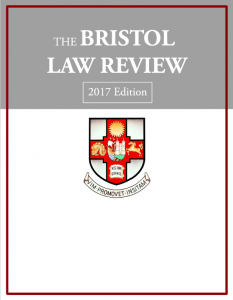By Dr Georgina Tsagas, Lecturer in Corporate Law (University of Bristol Law School).
In this blog entry, Dr Tsagas provides an overview of her proposal for the reform of the UK’s Corporate Governance Code. Her full arguments will soon be published in G Tsagas, “Section 172 of the Companies Act 2006: Desperate times call for soft law measures”, in N Boeger and C Villiers (eds.), Shaping the Corporate Landscape: towards corporate reform and enterprise diversity, Oxford: Hart Publishing, forthcoming.
Section 172 CA 2006: Not worth the paper it is written on?
Section 172 of the Companies Act 2006 has been afforded much attention during Parliamentary discussions on the codification of directors’ duties and has since the enactment of the Companies Act 2006 occupied much space in discussions among scholars who share an academic interest in the shareholder/stakeholder debate, in policy documents on law reforms following a series of corporate failures, as well as in company law lecture notes provided by Law Schools across the UK.
The previous duty to act bona fide in the interests of the company has been substituted by section 172 CA 2006, which imposes on a director the duty to ‘act in a way he considers, in good faith, would be most likely to promote the success of the company for the benefit of its members as a whole’ and in doing so must have regard to a series of factors listed in the section. The factors are: (a) the likely consequences of any decision in the long term, (b) the interests of the company’s employees, (c) the need to foster the company’s business relationships with suppliers, customers and others, (d) the impact of the company’s operations on the community and the environment, (e) the desirability of the company maintaining a reputation for high standards of business conduct, and (f) the need to act fairly as between members of the company.
With the UK leaving the EU, it is a critical time to discuss enlightened decision-making on boards, considering that, arguably, one of the key benefits of joining the EU with regard to UK company law, was that the UK was prompted to consider incorporating provisions affording a certain level of protection to the interests of other constituencies across a wide range of company and securities law Acts and regulations. What often escapes the attention of participants in discussions surrounding s. 172 CA 2006, is the section’s limitations not so much in terms of it prioritising the interests of shareholders over the interests of other constituencies, but with regard to its enforcement and utility overall. (more…)

